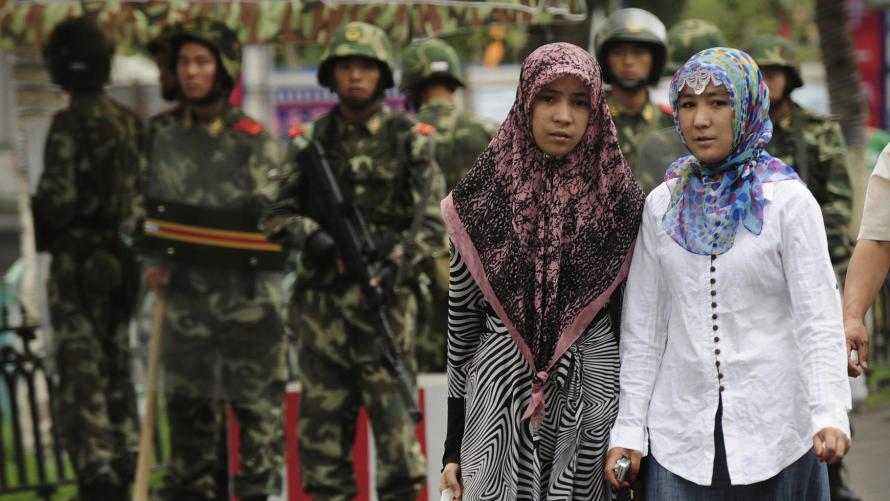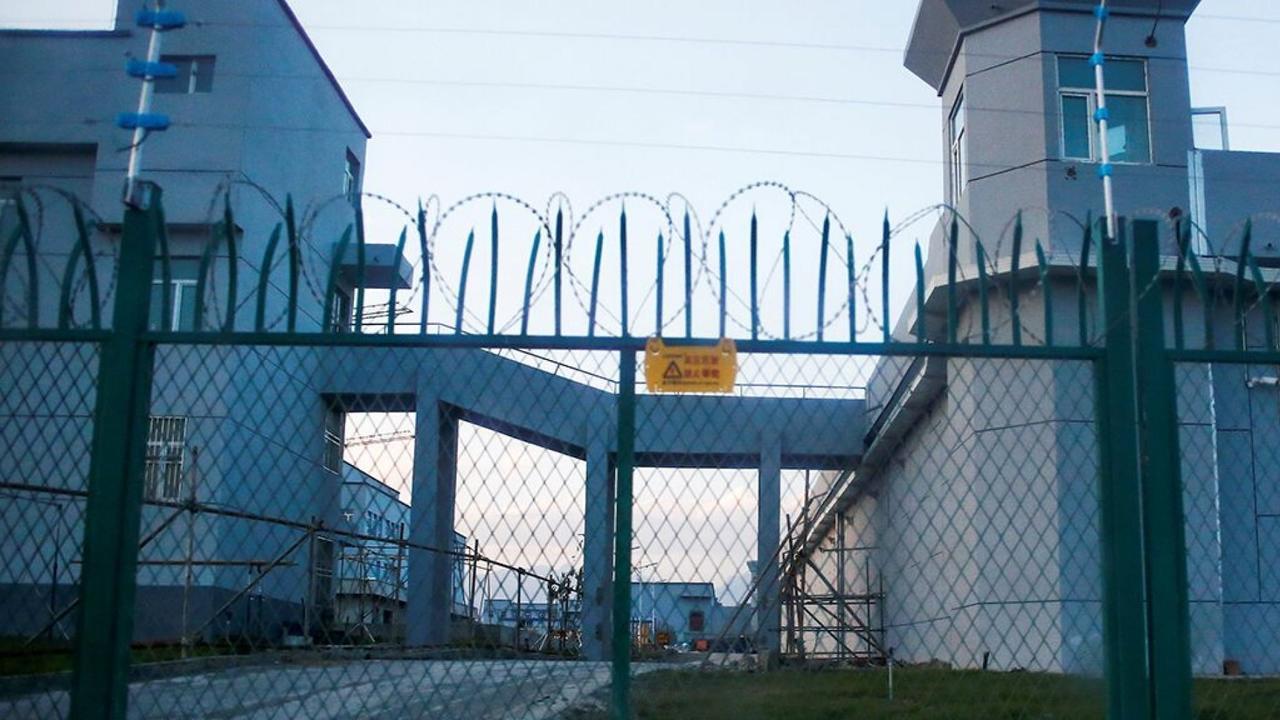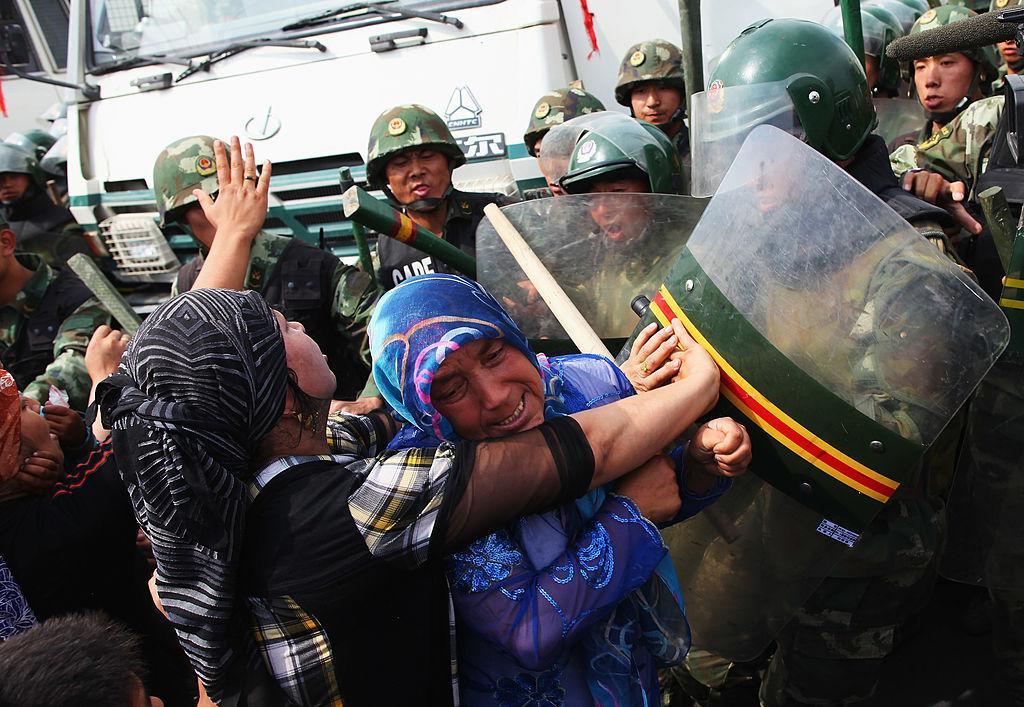EU Slams ‘Complicit’ Volkswagen Over China Treatment Of Uighurs After US Expands Blacklist
Tyler Durden
Tue, 07/28/2020 – 08:44
The chair of the European Parliament’s delegation for China relations, Reinhard Bütikofer, has slammed Volkswagen for its refusal to confront China over its treatment of Uighur Muslims, according to Politico.
This week, a group of unions and nongovernmental organizations called on major brands like Nike, Adidas and Amazon to stop sourcing goods from Xinjiang.
While the U.S. has already introduced some sanctions over Xinjiang, Bütikofer complained that the European Commission is still resisting pressure to take action. He reserved his strongest criticism, however, for Volkswagen, which has a factory in Xinjiang’s capital of Urumqi. –Politico
“Volkswagen … is a company without a conscience, Bütikofer told Politico, adding that “companies like that are complicit in upholding a totalitarian hell in Xinjiang.”
He also criticized the German carmaker for “denying any knowledge of the oppression of the Uighur people in Xinjiang.”
In a BBC interview, the EU official slammed former VW chief executive, Herbert Deiss, who said he wasn’t aware of China’s infamous detention camps, saying “That’s anything but credible, it just didn’t want to get on the record with taking a stance.“
Bütikofer argued the company had been reluctant to react to a 2020 report by the Australian Strategic Policy Institute revealing mass transfer of Uighurs to work under forced labor conditions in factories across China.
The report listed Volkswagen among “companies directly or indirectly benefiting from the use of Uighur workers outside Xinjiang through potentially abusive labor transfer programs.”
Volkswagen rejected the accusations about the Urumqi plant and its supply chains. –Politico
In an emailed response, Volkswagen told Politico “There are and have been no indications of human rights violations at the Urumqi plant,” adding that there were “no further indications that the forced labour of Uighurs [was] part of the supply chain of the Volkswagen Group China or its units.” In addition, VW says it has instituted a system to somehow ensure that its direct suppliers respect human rights.
Bütikofer is one of the signatories of an open letter sent on Friday by over 70 MEPs from different political groups, urging EU foreign policy chief Josep Borrell to demand the intervention of the United Nations to stop “serious and systematic human rights violations by the Chinese government against Muslim minorities in the Xinjiang region.” On Thursday, MEPs from the Renew Europe also asked Borrell to accelerate the adoption of a sanction system for human rights offenders.
“The Parliament is very active but so far the Commission has not picked that up,” said Bütikofer, who added that the Commission should not “hide behind the excuse” for failing to have a legal mechanism to take action.
“There is always an opportunity of naming and shaming. Infraction on basic human rights is so gross that we should not accept this business as usual approach,” he said.
The EU’s actions come one week after the US Commerce Department has added 11 Chinese companies to an economic blacklist over their involvement in China’s mistreatment of Uighur Muslims in the western region of Xinjiang.
According to Reuters, numerous textile companies and two firms conducting genetic analysis ‘used to further the repression of Uighurs and other Muslim minorities’ have been added to the list – prompting China to accuse the West of slander.
Why the US suddenly cares about China’s treatment of more than 1 million minority slaves living in giant forced-labor cities is anyone’s guess, but the United States, and now the EU, are now keen on holding Xi’s feet to the fire. Prior to the Trump administration, the US government apparently couldn’t care less. Now, there are 37 entities on the blacklist.
“Beijing actively promotes the reprehensible practice of forced labor and abusive DNA collection and analysis schemes to repress its citizens,” said Commerce Secretary Wilbur Ross in a statement.
China, meanwhile, has accused the Trump administration of slander – with foreign ministry spokesman Wang Wenbin warning at a Tuesday press conference that China would take all measures to protect its companies’ rights.
The companies added to the blacklist include Nanchang O-Film Tech, a supplier for Apple’s iPhone that hosted Apple chief executive Tim Cook in December 2017, according to O-Film’s website. It is also a supplier to Amazon.com Inc and Microsoft, according to an April congressional letter.
The list includes two subsidiaries of Beijing Genomics Institute (BGI), a genomics company with ties to the Chinese government, Senator Marco Rubio said. –Reuters
Senator Rubio says the additions to the blacklist will “ensure that U.S. technology does not aid the Chinese Communist Party’s crimes against humanity and egregious human rights abuses against Uighurs and other minorities in Xinjiang, including the forced collection of DNA.”
Another company on the revised list is KTK Group Co, which manufactures over 2,000 items for high-speed trains “ranging from electronics to seats; and Tanyuan Technology Co, which assembles high thermal, conductive graphite reinforced aluminum composites,” according to the report.
The company said in a statement that it has no investments in the US, does not rely on US technology, and that US exports account for less than 0.5% of its 2019 revenue.
Changji Esquel Textile Company, which manufactures clothing for Ralph Lauren, Tommy Hilfiger and Hugo Boss, was also added to the list. The company asked Ross to remove them from the blacklist, with CEO John Cheh stating in a letter “Esquel does not use forced labor, and we never will use forced labor,” adding “We absolutely and categorically oppose forced labor.”
As we noted last week, Uighurs are allegedly being used as unwilling human subjects in genetic research, as Reuters reports:
Among them are numerous textile companies and two firms the government said were conducting genetic analyses used to further the repression of Uighurs and other Muslim minorities.
It was the third group of companies and institutions in China added to the U.S. blacklist, after two rounds in which the Trump administration cited 37 entities it said were involved in China’s repression in Xinjiang.
“Beijing actively promotes the reprehensible practice of forced labor and abusive DNA collection and analysis schemes to repress its citizens,” Commerce Secretary Wilbur Ross said in a statement.
In another ghastly example, one company is said to be mass collecting human hair from Uighur prisoners to use in wig products:
Also on the banned roster is Hetian Haolin Hair Accessories Co. On May 1, U.S. Customs and Border Protection (CBP) said it was halting imports of the company’s hair products, citing evidence of forced labor.
On July 1, CBP seized in Newark a shipment of almost 13 tons of hair products worth over $800,000 with human hair that it said originated in Xinjiang.
The NYT story was released just as newly resurfaced footage allegedly showing bound and blindfolded Chinese Muslims being loaded onto train cars went viral.
#Marr asks Chinese ambassador to the UK Liu Xiaoming to explain footage from China of handcuffed and blindfolded detained peoplehttps://t.co/PkjcTsClEX pic.twitter.com/RSbrSaOAPT
— BBC Politics (@BBCPolitics) July 19, 2020
via ZeroHedge News https://ift.tt/3hKfLaB Tyler Durden


